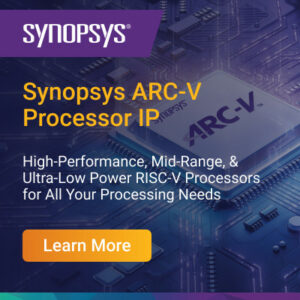
- This event has passed.
“Microelectronics: Foundations and Futures” Executive Course
April 27, 2022 @ 8:00 AM - April 29, 2022 @ 5:00 PM
$3,500Next Course Date: April 27-29, 2022
Application Deadline: April 6, 2022
Location: Potomac Institute Ballston Headquarters (901 N Stuart Street, Arlington, VA, 22203)
Tuition: $3,500*
*A limited number of slots are available at a discounted rate for participants from the US Government, non-profit sector, or academia. Please email education@potomacinstitute.org for more information.
Course Description
Recent years have revealed more than a few vulnerabilities in US security and technology supply chains, not the least of which being our dependence on advanced microelectronics. From semiconductor shortages to malign microchip actors to overseas dependencies, we face a host of challenging obstacles for this vital industry. How have we gotten here? Where are we going? Why do we need reform now? Find the answers to all this and more in Potomac Institute for Policy Studies’ flagship executive course—Microelectronics: Foundations and Futures.
This 3-day course hosted at the Institute will explore the history of microelectronics, detail the current state of the practice, and review legacy and state of the art technology needs as well as their impact on the US economy and national defense. Course sessions will be led by instructors that present a briefing followed by Socratic-style dialogue between the participants and instructor to elicit critical understanding of the concepts and issues. The course will culminate in an interactive policy briefing simulation where participants will create recommendations for the policy questions of export control for microelectronics technologies, forming a briefing as a team with an expert coach for presentation to the class. Instructors will include industry leaders, government officials, technical experts, and key decision makers and influencers who will help participants understand the big picture of this technology area that affects every part of American culture and economics.
The Potomac Institute for Policy Studies invites early- to mid-career professionals with an interest in understanding the complexities and nuances of the microelectronics industry and its impacts on the US economy and national defense. This policy-oriented course is perfect for industry, government, and academic professionals alike with a shared goal of identifying and addressing the challenges the US faces in the microelectronics industrial arena.
Session Descriptions
Microelectronics: The Building Blocks of Modern Society
This pre-recorded briefing will provide a shared foundation for participants to launch their learning from before the course even begins. When the first integrated circuit microchip was demonstrated in 1958 almost no one bought in, now microchips are in almost everything we buy and use – phones, cars, fridges, and more! How did we get from there to here? What are the biggest innovations of the past six decades? How have they shaped and changed the way we interact with technology and the world around us?
7 Myths and Facts About Microelectronics
It is more important than ever to understand the data and facts of an issue, getting to the heart of the problem. Complex overlapping factors affecting the demand, supply chain, and business models for microelectronics can easily cloud the truth of the matter. The session will debunk common misconceptions and unravel their origins.
Understanding Fabrication
Fabrication is at the heart of the microelectronics industry. It defines volumes, applications, costs, security, and business models. Take a deep dive into the multifaceted fabrication process and develop a strong understanding of its importance and impacts.
Market and Technology Trends
What are key players in the industry doing and how are they developing their strategies? How are suppliers and buyers in the market affecting industry innovation and practice? From node size to order size, understand integral perspectives and how various actions shape the market – both intentionally and unexpectedly.
Policy Perspectives Part. 1: U.S. DoD and Military
Although the US Department of Defense only holds 2% of the market themselves, they are the primary drivers of security and national policy regarding microelectronics. With its niche needs and complex bureaucracy, the DoD juggles complex decisions and trade-offs. Using various case studies from the past and current policy arenas, this session will explore the factors of microchip policy.
Policy Perspectives Part. 2: Corporate Considerations
Corporations control the business aspects of the microelectronics industry and determine the business models used. Serving available and newly developing markets is the key aspect for financial success. Learn these market forces from the viewpoint of key industry stakeholders. Explore how their decisions shape the policy and the landscape of the microelectronics industry – and how the policy and landscape shape their decisions.
Disruptions, Obstacles, and Opportunities
There are defining moments that shape our view of industry and alter the trajectory of the field. For the microelectronics industry those moments include the closing of production fabs, important technologies going obsolete, major supply chain disruptions, and even a global pandemic. New policy, such as the American Foundries and CHIPS Acts, is likely to add to that list. Take a look at the microelectronics industry disruptions of the past decade and their lasting effects creating the opportunities and obstacles we have in front of us now.
Securing the Supply Chain: Identifying and Mitigating Risk
Trust. Privacy. Security. These are important technology attributes for the success of the industry particularly today. As the microelectronics supply chain grows more complex, we need to ensure that these key needs are met and not just buzzwords. Where are there vulnerabilities, and how do we patch the holes before the ship sinks?
Looking Past Tomorrow: The Future of Technology Acquisition Needs
In a culminating session, explore the differing acquisition models used by the corporate and defense technology communities. There is a wide divergence in approaches and outcomes that must be understood. The discussion will also analyze strategic US goals and policy actions needed to achieve them. This session will contemplate how the “end of Moore’s law” may impact innovation trajectories, business models and acquisition policies.
Collaborative Activity – Policy Briefing Simulation: US Export Control for Microelectronics
Applying the knowledge learned over the week, participants will engage in an active, policy briefing exercise to recommend how the US should address export control on microelectronics. The cohort will be split into teams on the second day of the course. Teams will be assigned an expert coach to give a unique perspective from real-life experience and to act as a sounding board for the groups before their presentation. Each side will research and prepare their position then present and promote their recommendations to the cohort and coaches on the final day.













Huawei’s and SMIC’s Requirement for 5nm Production: Improving Multipatterning Productivity